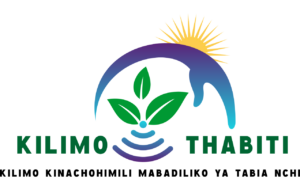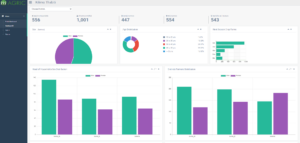Tanzania
Kilimo Thabiti- Agriculture that is resilient to climate change
To support climate-smart solutions that support farmers in their decision making, Weather Impact, Tanzania Agricultural Research Institute (TARI), ESOKO and Tanzania Youth Espouse for Gender and Development (TYEGD) are working together in the Kilimo Thabiti project. We will develop, provide and test a location-specific dynamic Agri-Weather Advisory service. To tailor this service to the farmer and make it crop-specific, the development goes beyond sending general weather forecasts and farming advisories.
Cassave and maize
Tanzania is home to over 63 million people, 80% of which is dependent on the agricultural sector, which accounts for 25% of its GDP. The agricultural sector of Tanzania is dominated by smallholder farmers. They produce 95% of the national food requirements. Many produce staple crops such as maize and cassava, which are part of the top 3 most consumed foods in the country and 30% of the total agricultural land is dedicated to maize. These two crops are therefore essential for food production, population’s income and food security and represent the two largest planted areas in the Mara region. Cassava and maize are not only consumed domestically but also serve as cash crops for export.
Local populations have experienced heavy droughts, floods and delays in the start of the rain season coupled with uneven rainfall distribution during the season. Due to climate change,
crop yields of staple produce (i.e., maize, cassava) are projected to decrease (USAID 2018).
Two-way communication with farmers
By developing an agri-weather advisory service for the Tanzanian farmers, we aim to enhance food security and increase crop-yield for cassava and maize farmers for the next season.
The service will be disseminated directly on the telephone of 2400 farmers via SMS, voice message and mobile application in the Mara region in Tanzania. 500 farmers will receive training on usage of the Agri-weather tool, climate change, and digital literacy. The service is based on real time crop-growth modeling, weather forecasts and two-way communication with farmers. The communication channel used within this project will work both ways, allowing farmers to receive agri-weather advisories, but also send information back (e.g. crop types, planting dates, crop status, questions, feedback, etc.). This way, we use local farmers’ knowledge and information to make the service more specific and accurate.
The project is funded by the Fund for Innovation in Development (FID) and plans to deliver:
- A dynamic real-time agri-weather advisory service for maize and cassava, and alerts
- Establishing communication channels via SMS and app that do not only allow for sending advisories but also for gathering feedback
- Farmers trainings on the use and interpretation of agro-weather advisory services
- Real-time monitoring of crop growth and rainfall by a group of trained citizen scientists
Three local partners are involved in the development of this innovation:
- The Tanzania Agricultural Research Institute (TARI) who has developed an agronomic package to advise cassava and maize farmers on when to plant, harvest, weed, etc.
- ESOKO for their IT and platform expertise to bring information to smallholder farmers
- Tanzania Youth Espouse for Gender and Development (TYEGD) to ensure inclusion and diversity in smallholder agriculture
Kick-Off week
January 2024 marked the official launch of the Kilimo Thabiti project in Tanzania! A week full of working sessions, farmer visits and fun team-building activities, together with all partners. We have trained 30 lead farmers for on the ground data collection to enhance the accuracy of the advisories. They learned how to take correct rainfall and soil moisture measurements and can transfer this knowlegde to other farmers.
With a powerfull digital platform that has been developed by Esoko, complete farmer profiles are registered. This includes a lot of usefull data such as district and ward location, type of crop, gender and age. A screenshot of the dashboard is shown below;
Fig. 1 MAgric dashboard with farmer registrations information.
A number of special government officials was invited to attend this kick-off as well and we even made it to three television news channels in Tanzania, which truly made it a great start!
Video: Item about the Kilimo Thabiti project on the national Tanzanian television news channels
More news about this project;
Kilimo Thabiti Kick-off week
Weather Impact launced Kilimo Thabiti
TARI – Kick-off Kilimo Thabiti



















